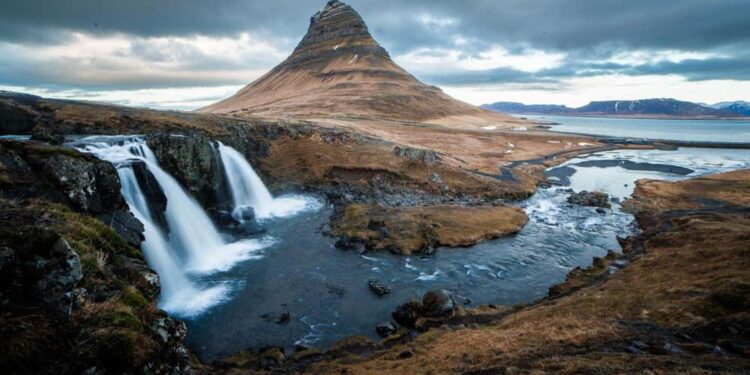In a significant geopolitical development, Iceland has issued a stern warning to Russia regarding its activities in the Arctic region, underscoring growing concerns over security and environmental stability. As the Arctic becomes increasingly accessible due to climate change, nations are vying for influence and resources, prompting Reykjavik to call for greater international cooperation to uphold peace and stability in this strategically vital area. The warning comes amid heightened military presence and exploratory initiatives by Russia, raising alarms among Arctic Council member states and beyond. This article delves into the implications of Iceland’s stance, the broader context of Arctic geopolitics, and the urgent need for collaborative governance in one of the world’s most fragile ecosystems.
Iceland’s Strategic Concerns Over Russian Arctic Expansion
Iceland’s geopolitical landscape is shifting in response to the increasing militarization and expansion of Russian interests in the Arctic region. As a nation with extensive maritime borders and a strategic location close to the North Atlantic, Iceland is particularly vulnerable to the ramifications of Russian activities, which could disrupt the delicate balance of power in this sensitive area. The Icelandic government has voiced concerns that the escalation of Russian military presence, including the establishment of new bases and enhanced naval operations, poses a direct threat to regional stability and Arctic security.
Key points surrounding Iceland’s strategic concerns include:
- Military Buildup: Increased Russian military exercises and infrastructure development in the Arctic.
- Environmental Impact: The potential for ecological consequences resulting from expanded resource extraction and maritime navigation.
- Alliances: The need for enhanced collaboration with NATO and like-minded nations to counteract Russian expansionism.
- Economic Interests: Safeguarding fishing rights and natural resources that are crucial to Iceland’s economy amidst growing competition.
To better illustrate the current state of affairs in the Arctic, the following table summarizes key Russian activities in the region:
| Activity | Description | Status |
|---|---|---|
| Military Exercises | Joint drills showcasing enhanced capabilities. | Ongoing |
| Base Construction | Establishment of new military outposts. | In Progress |
| Resource Exploration | Surveying for natural resources in the Arctic Circle. | Active |
Analyzing Geopolitical Tensions and Environmental Implications
The rising tensions in the Arctic region are increasingly under scrutiny as countries, notably Iceland, express concerns over Russia’s expanding presence. This situation highlights a critical intersection of geopolitical strife and environmental stewardship. As nations vie for control over the rich natural resources in the Arctic, issues of climate change and sustainable practices take center stage. The melting ice caps, a consequence of global warming, have opened new maritime routes, thereby escalating competition among Arctic nations. Iceland’s warning emphasizes the need for diplomatic engagement, suggesting that without cooperative frameworks, the environmental ramifications could be dire:
- Increased Shipping Traffic: The thawing Arctic could see a surge in maritime shipping, raising risks of oil spills and habitat disruption.
- Resource Exploitation: Escalated drilling activities may endanger local wildlife and destabilize ecosystems.
- Regulatory Challenges: Existing international laws may struggle to keep pace with the rapid changes occurring in this region.
The implications of these geopolitical maneuvers extend beyond borders, affecting global environmental policies as well. As nations like Iceland position themselves as guardians of the Arctic, there is a call for collective action to mitigate environmental degradation. This is where the urgency for tailored NATO strategies becomes evident, designed not only to address security concerns but also to foster sustainable economic practices. The balance between national interests and ecological responsibility will determine the future stability of the region:
| Issue | Potential Impact |
|---|---|
| Military Engagement | Heightened conflict risks, negative effect on regional diplomacy |
| Resource Competition | Environmental degradation, loss of biodiversity |
| Climate Change Mitigation | Increased emphasis on international laws and cooperation |
Proposed Collaborative Efforts for Arctic Security and Sustainability
The Arctic landscape is evolving, and with it, the geopolitical dynamics and environmental challenges faced by its inhabitants and surrounding nations. In light of the increasing tensions underscored by Iceland’s recent warning regarding Russia’s activities, there is a pressing need for collaborative measures that prioritize security and sustainability in the region. Proposed partnerships among Arctic nations could focus on addressing shared concerns such as resource management, climate change adaptation, and maritime security. A framework for joint operations could enhance surveillance and response capabilities, ensuring that the Arctic remains a space for peaceful coexistence rather than conflict.
Key areas for potential collaboration include:
- Environmental Protection: Initiatives aimed at preserving fragile ecosystems and addressing the impacts of climate change through research and joint conservation efforts.
- Security Cooperation: Establishing multilateral agreements to strengthen defense relations, share intelligence, and improve responses to potential threats.
- Resource Sharing: Developing cooperative frameworks that promote responsible resource extraction while respecting the rights of indigenous communities.
| Collaborative Initiative | Description | Key Stakeholders |
|---|---|---|
| Arctic Environmental Protection Program | Joint efforts focused on combating climate change effects and preserving biodiversity. | Iceland, Norway, Denmark |
| Security Framework | Developing protocols for military cooperation and crisis response. | United States, Canada, NATO |
| Resource Management Taskforce | Collaborating on sustainable extraction practices and allocation of resources. | Russia, Finland, Sweden |
Future Outlook
In conclusion, Iceland’s bold stance on Arctic security underscores the shifting dynamics in one of the world’s most sensitive regions. As climate change opens new opportunities and challenges in the Arctic, Reykjavik’s warning to Russia serves as a critical reminder of the need for international cooperation and vigilance. As nations grapple with the implications of territorial claims and environmental stewardship, Iceland’s call for dialogue and respect for international law highlights the importance of collective action in ensuring peace and stability in the Arctic. As we continue to monitor developments in this strategically vital area, the global community must remain attentive to the implications of geopolitical maneuvers for both regional and global security.














